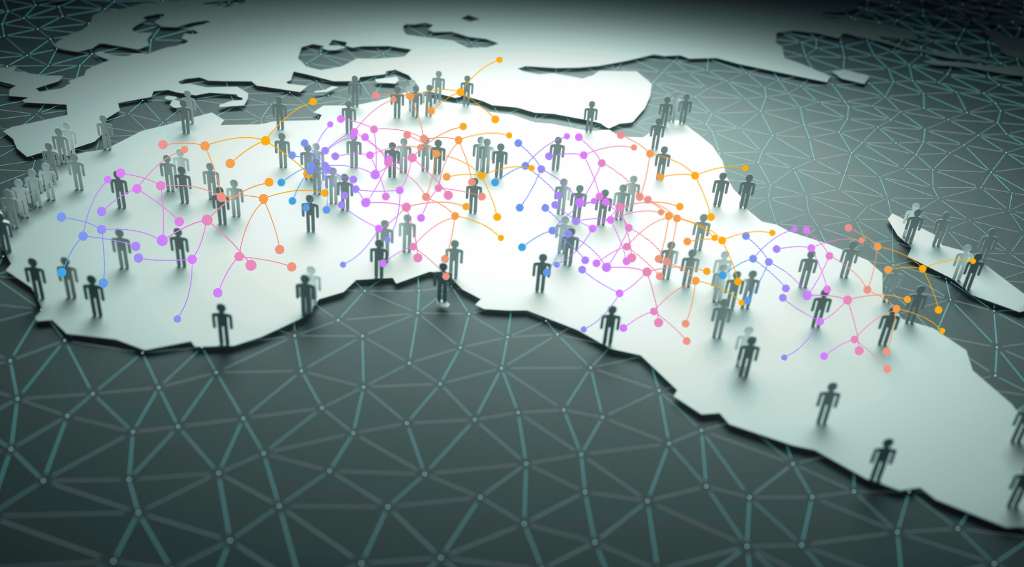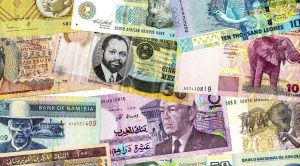In Africa, where financial inclusion and seamless cross-border transactions play a crucial role in economic growth, intra-Africa money transfers are gaining increasing prominence. This article explores the advantages of intra-Africa money transfers, shedding light on the transformative potential they hold for Africa’s financial landscape.
Intra-Africa money transfers refer to the movement of funds within the African continent, enabling individuals, businesses, and organizations to send and receive money across borders. These transfers occur between African countries, providing a convenient and efficient alternative to traditional international remittances.
As Africa experiences rapid economic growth and increasing globalization, the need for efficient and convenient money transfers becomes paramount. Intra-Africa money transfers offer significant advantages over international transfers, including improved efficiency, cost savings, faster processing times, enhanced convenience, and the promotion of economic growth and development.
The Advantages of Intra-Africa Money Transfers
Improved efficiency compared to international transfers
Intra-Africa money transfers provide a streamlined and efficient process for sending and receiving funds within the continent. Unlike international transfers that often involve multiple intermediary banks and complex routing, intra-Africa transfers benefit from regional integration and collaboration between financial institutions. This streamlined process ensures quicker transactions, reducing the time and effort required to send and receive money.
Cost savings and reduced fees
Compared to international transfers, intra-Africa money transfers often incur lower fees and transaction costs. Traditional international remittances can be expensive due to currency conversion fees, intermediary charges, and other associated costs. Intra-Africa transfers eliminate or significantly reduce these expenses, making financial transactions more affordable for individuals and businesses across the continent.
Faster processing times
Intra-Africa money transfers are known for their faster processing times compared to international transfers. The streamlined infrastructure and regional cooperation enable funds to be transferred and settled more quickly. This efficiency is particularly beneficial for urgent transactions or when immediate access to funds is required.
Enhanced convenience and accessibility
One of the key advantages of intra-Africa money transfers is the enhanced convenience and accessibility they offer. Traditional banking services can be limited in remote areas or underserved communities, making it challenging for individuals to access financial resources. Intra-Africa transfers, often facilitated through mobile money solutions and digital wallets, provide a convenient and accessible way for people to send, receive, and manage funds using their mobile devices.
Encouraging economic growth and development
Efficient and convenient money transfers within Africa play a crucial role in promoting economic growth and development. By facilitating seamless financial transactions, intra-Africa transfers stimulate trade, investment, and entrepreneurship. They enable individuals and businesses to participate more actively in the economy, fostering economic empowerment and contributing to the overall development of the continent.
Efficient and Secure Payment Systems
The advantages of intra-Africa money transfers are made possible through the effective use of technology and the establishment of secure payment systems. Various factors contribute to the efficiency and security of these transactions.
The role of technology in intra-Africa money transfers
Technological advancements have revolutionized the financial landscape in Africa, enabling innovative solutions for money transfers. Mobile technology, in particular, has played a pivotal role in expanding financial access and transforming the way people manage their finances. Mobile money solutions have gained widespread adoption, allowing individuals to send, receive, and store money digitally using their mobile devices.
Mobile money solutions and digital wallets
Mobile money solutions, such as M-Pesa in East Africa, have been instrumental in driving the adoption of intra-Africa money transfers. These platforms enable users to deposit money into virtual accounts, transfer funds, pay bills, and make purchases using their mobile phones. Digital wallets provide a secure and convenient way for individuals to store and manage their money, reducing the reliance on physical cash and traditional banking services.
Integration of financial services with mobile devices
The integration of financial services with mobile devices has significantly contributed to the accessibility of intra-Africa money transfers. Through mobile applications and USSD codes, individuals can initiate transactions, check account balances, and perform various financial activities directly from their mobile phones. This integration ensures that financial services are available to a broader segment of the population, including those who previously lacked access to traditional banking channels.
Robust security measures for safe transactions
To ensure the security and integrity of intra-Africa money transfers, robust measures are implemented. Encryption technologies, secure authentication protocols, and advanced fraud detection systems protect transactions and safeguard user information. Financial institutions and mobile money service providers adhere to stringent regulations and compliance standards to mitigate risks and maintain a secure financial ecosystem.
Enabling Financial Inclusion
Intra-Africa money transfers play a vital role in enabling financial inclusion, particularly for underserved communities and individuals who have limited access to traditional banking services. This section explores the ways in which intra-Africa transfers promote financial inclusion and empower individuals.
Overcoming traditional banking limitations
Traditional banking services can be inaccessible for many Africans due to factors such as geographical barriers, lack of documentation, or inadequate infrastructure. Intra-Africa money transfers, facilitated through mobile money solutions, overcome these limitations by providing a digital platform for financial transactions. This empowers individuals who would otherwise be excluded from formal financial systems
Expanding access to financial services
Intra-Africa money transfers extend financial services to previously underserved populations. Mobile money solutions have revolutionized access to banking services, allowing individuals to open accounts, deposit and withdraw funds, and make transactions without the need for a physical bank branch. This inclusivity promotes financial independence and empowerment for individuals who may have limited options for financial services.
Empowering underserved communities
Intra-Africa money transfers have the potential to uplift underserved communities by providing them with a means to access financial resources. Individuals in rural areas, where traditional banking services may be scarce, can leverage mobile money solutions to participate in financial transactions, save money, and even access microfinance services. This empowerment contributes to poverty reduction and economic stability within these communities.
Promoting entrepreneurship and economic empowerment
Intra-Africa money transfers are instrumental in promoting entrepreneurship and economic empowerment. By facilitating the flow of capital and enabling secure and convenient transactions, individuals are empowered to start and grow their businesses. Entrepreneurs can access funding, receive payments from customers, and expand their networks, driving economic growth and creating job opportunities.
Promoting Regional Integration and Trade
Intra-Africa money transfers play a significant role in promoting regional integration and facilitating trade among African countries. The advantages they offer contribute to strengthening economic ties and fostering collaboration.

Facilitating cross-border transactions
Intra-Africa money transfers simplify and expedite cross-border transactions within the continent. Previously, international transfers were often the only option for cross-border payments, which incurred higher costs and longer processing times. By promoting intra-Africa transfers, barriers to conducting business across borders are reduced, encouraging trade and economic cooperation.
Strengthening economic ties between African countries
Efficient and convenient money transfers within Africa foster closer economic ties between countries. They facilitate the exchange of goods, services, and investments, leading to increased trade volumes and improved economic cooperation. As African nations become more interconnected financially, they can leverage their collective strengths and resources for mutual benefit and sustainable development
Boosting trade and investment opportunities
The advantages of intra-Africa money transfers contribute to a more favorable business environment, encouraging trade and investment within the continent. By reducing transaction costs and processing times, businesses can engage in cross-border transactions more efficiently. This increased ease of doing business attracts investors and opens up new opportunities for economic growth and development.
Removing barriers and enhancing collaboration
Intra-Africa money transfers help to remove barriers that hinder collaboration between African countries. By promoting a seamless flow of funds, businesses can easily engage in joint ventures, partnerships, and collaborative projects. This collaboration fosters innovation, knowledge sharing, and resource pooling, creating a conducive environment for sustainable development across the continent.
Government Initiatives and Regulations
Government initiatives and regulatory frameworks play a crucial role in promoting and regulating intra-Africa money transfers. They provide a supportive environment for financial innovation and ensure the security and transparency of transactions.
Encouraging intra-Africa money transfers through supportive policies
Governments across Africa are recognizing the importance of intra-Africa money transfers and are implementing policies to encourage their adoption. These policies include measures to reduce regulatory barriers, streamline licensing processes, and create a favorable ecosystem for financial innovation. By creating an enabling environment, governments promote the growth of digital financial services and enhance financial inclusion.
Promoting transparency and accountability
Transparency and accountability are key aspects of effective financial systems. Governments and regulatory bodies work to ensure that intra-Africa money transfers adhere to stringent regulations and standards. Measures such as anti-money laundering (AML) and know-your-customer (KYC) protocols are implemented to prevent illicit financial activities and ensure the integrity of the financial system. By promoting transparency and accountability, governments foster trust and confidence in intra-Africa money transfers.
Regulatory frameworks for cross-border transactions
To facilitate smooth and secure cross-border transactions within Africa, regulatory frameworks are put in place. These frameworks outline guidelines and standards for financial institutions, mobile money operators, and other stakeholders involved in intra-Africa transfers. Harmonizing regulations across countries simplifies compliance procedures and promotes a consistent and secure environment for financial transactions.
Harmonizing financial systems and standards
Efforts are underway to harmonize financial systems and standards across African countries. This includes initiatives to establish interoperability between different mobile money platforms, enabling seamless transfers between providers. Harmonization efforts aim to create a unified financial ecosystem within Africa, reducing fragmentation and enhancing the efficiency of intra-Africa money transfers.
Challenges and Solutions
While intra-Africa money transfers offer numerous advantages, there are challenges that need to be addressed to ensure widespread adoption and effectiveness. The following are some of the challenges and potential solutions:
Addressing infrastructure limitations
Limited infrastructure, particularly in remote areas, can pose challenges for intra-Africa money transfers. Lack of reliable internet connectivity and electricity can hinder the accessibility and reliability of digital financial services. To address this, investments in infrastructure development are necessary, including the expansion of internet connectivity and the establishment of reliable power sources, such as solar energy, in underserved regions.
Bridging the digital divide
The digital divide, which refers to the gap in access to digital technologies, can hinder the adoption of intra-Africa money transfers. Not everyone has access to smartphones or the internet, limiting their ability to participate in digital financial transactions. Bridging the digital divide requires initiatives that promote affordable smartphones, internet access, and digital literacy programs to empower individuals with the necessary tools and skills

Ensuring affordability and accessibility
Affordability and accessibility are critical factors in driving the adoption of intra-Africa money transfers. It is essential to keep transaction costs low and ensure that financial services are accessible to all segments of society, including those in rural areas and low-income communities. Collaboration between financial institutions, mobile network operators, and governments can help identify innovative solutions to make intra-Africa transfers more affordable and accessible.
Collaboration between stakeholders for effective solutions
Addressing the challenges associated with intra-Africa money transfers requires collaboration between various stakeholders. Governments, financial institutions, telecommunications companies, and regulatory bodies need to work together to develop solutions that enhance the efficiency, security, and accessibility of intra-Africa transfers. By fostering collaboration, stakeholders can leverage their expertise and resources to overcome barriers and drive positive change.
Case Studies: Successful Intra-Africa Money Transfer Services
Several case studies highlight the success of intra-Africa money transfer services in revolutionizing the financial landscape. These services have transformed the way people send and receive money within the continent, promoting financial inclusion and economic growth. The following are a few examples:
M-Pesa: Transforming mobile money in East Africa
M-Pesa, launched in Kenya in 2007, has become a widely recognized and successful mobile money platform. It enables users to send, receive, and store money using their mobile phones, making financial transactions accessible to millions of people. M-Pesa has expanded beyond Kenya and is now available in several other African countries, empowering individuals and businesses with convenient and secure money transfer services.
Tumapay: Enabling seamless cross-border transactions
Tumapay is a fintech company that provides a mobile app and payment infrastructure platform, enabling both individuals and businesses to make and receive payments across Africa respectively. Their technology simplifies cross-border transactions by integrating with various payment methods. Tumapay has facilitated seamless intra-Africa money transfers, allowing businesses to expand their operations across borders and tap into new markets.
Ecobank Rapidtransfer: Facilitating instant transfers
Ecobank Rapidtransfer is an innovative intra-Africa money transfer service offered by Ecobank, a leading pan-African bank. The service allows customers to send and receive funds instantly across multiple African countries. With Ecobank Rapidtransfer, individuals and businesses can enjoy the convenience and speed of intra-Africa transfers, promoting regional integration and economic cooperation.
These case studies demonstrate the positive impact of intra-Africa money transfer services in promoting financial inclusion, facilitating cross-border transactions, and driving economic growth within the continent.
Conclusion
Intra-Africa money transfers offer a multitude of advantages that enhance efficiency and convenience in financial transactions within the continent. The streamlined process, cost savings, faster processing times, and enhanced accessibility empower individuals and businesses, promoting financial inclusion, entrepreneurship, and economic development.
Through the effective use of technology, such as mobile money solutions and digital wallets, intra-Africa transfers have become more accessible, bridging the gap between traditional banking limitations and the financial needs of underserved populations. Government initiatives and regulatory frameworks play a crucial role in ensuring the security, transparency, and interoperability of these transactions.
Despite the challenges posed by limited infrastructure and the digital divide, collaborative efforts between stakeholders are key to addressing these obstacles and promoting widespread adoption of intra-Africa money transfers. By leveraging successful case studies and fostering regional integration, African countries can unlock the full potential of intra-Africa transfers, driving economic growth, trade, and financial empowerment.
FAQs (Frequently Asked Questions)
- What are intra-Africa money transfers? Intra-Africa money transfers refer to the process of sending and receiving funds within African countries, facilitating financial transactions between individuals and businesses across the continent.
- How are intra-Africa money transfers different from international transfers? Intra-Africa money transfers involve transactions within the African continent, while international transfers involve sending money outside of Africa. Intra-Africa transfers benefit from regional integration, lower fees, faster processing times, and enhanced accessibility.
- What role does technology play in intra-Africa money transfers? Technology, particularly mobile money solutions and digital wallets, has revolutionized intra-Africa money transfers. It enables individuals to send, receive, and manage funds using their mobile devices, expanding financial access and convenience.
- How do intra-Africa money transfers promote financial inclusion? Intra-Africa money transfers provide access to financial services for underserved communities, overcoming traditional banking limitations. They empower individuals by enabling them to participate in financial transactions, save money, and access microfinance services.
- What is the impact of intra-Africa money transfers on regional integration and trade? Intra-Africa money transfers foster regional integration by simplifying cross-border transactions and strengthening economic ties between African countries. They boost trade volumes, attract investments, and promote collaboration, contributing to economic growth and development.




